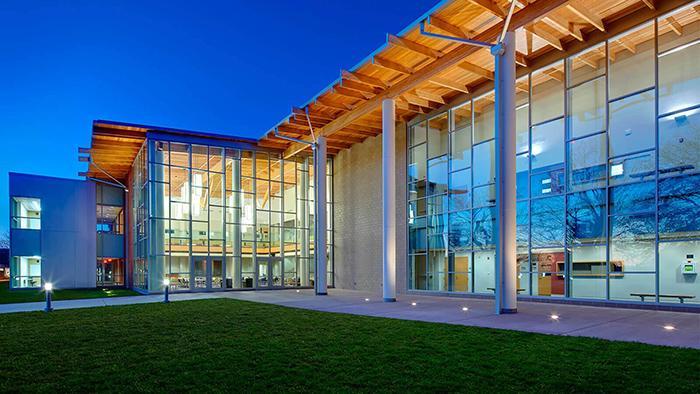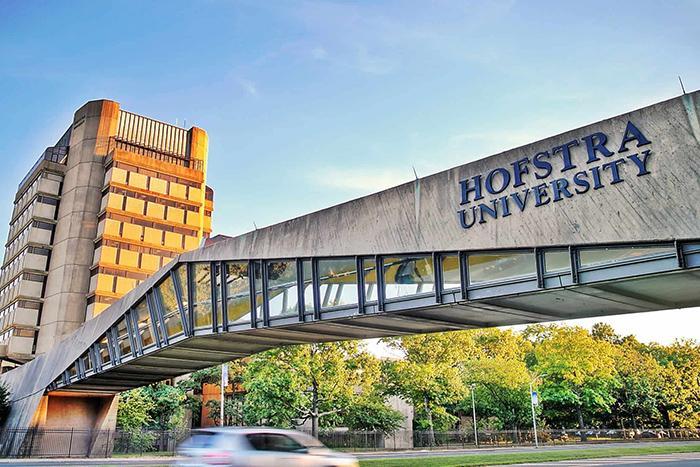Overview
Due in large part to the popularity of shows like CSI, NCIS, and Forensic Files as well as documentaries like Making a Murderer and podcasts like Serial, the number of students majoring in forensic science has skyrocketed in recent years. The BLS estimates a 27% increase in employment from 2014 to 2024. However, the job market is still very competitive because so many freshmen have been majoring in this area since the turn of the millennium. If you’re looking for a job in forensic science, having a degree from one of the schools on our Best Colleges for Forensic Science list will give you a huge leg up on the competition. The best forensic science programs are within reach of bright but less-than-perfect applicants because the majority of the schools on this list routinely accept students with “B” grades.

Best forensic science schools
Pennsylvania State University | Penn State
The forensic science program at Penn State is interdisciplinary in nature, bringing together experts from various departments to teach students about criminalistics, forensic chemistry, forensic biology, crime scene investigation, and social science. There are two possible concentrations for a science degree: biology and chemistry. They have access to a high-tech forensics lab and a dedicated crime scene training center.
George Mason University

Crime scene analysis, forensic DNA, forensic chemistry, trace evidence, firearms examination, fingerprints, arson, and drug analysis are just some of the topics covered in George Mason University’s BS in Forensic Science program. Forensic biology and chemistry programs provide students with cutting-edge, practical training.
The university has ties to numerous forensic science agencies and labs, including the FBI, giving students access to state-of-the-art facilities where they can gain practical experience.
University of Central Florida | UCF
Those interested in forensic science at UCF can choose between a biochemistry concentration and a chemistry concentration. Instrumentation, writing in a scientific style, performing and assessing scientific investigations, and their potential future roles in the legal system are all covered. In addition, they will get real-world training in a cutting-edge lab.
Syracuse University
Forensic Science at Syracuse is an Integrated Learning Major (ILM), meaning that it is intended to supplement a variety of other majors by providing students with a broad introduction to the field and encouraging them to apply their knowledge in novel contexts. Coursework and fieldwork will be varied, and students will have access to state-of-the-art facilities. There is an institute dedicated to forensics and national security at the university.
Students interested in forensic science should consider doing international study.
Madonna University

The Forensic Science Education Programs Accreditation Commission has only approved one undergraduate program in Michigan, and that is at Madonna University.
Independent research is encouraged in the Forensic Science program, which is taught by professionals with extensive experience in the field. The faculty at MU assists students in polishing their research for publication in scholarly journals, which can increase their chances of being hired or accepted to a more advanced program of study.
These educators play the dual role of mentor and educator by placing their students in real-world settings. Students will be able to learn from the wisdom of veterans in the field while becoming familiar with the universal procedures used in forensic science.
Graduates like Brandon Good (who graduated in 2006 and is now the Lab Manager of the Biology Unit at the Michigan State Police Northville Crime Laboratory) and Stephanie Gladyck (who graduated in 2013 and is currently pursuing a Ph.D. in Molecular Genetics and Genomics at Wayne State University) are proof of the program’s success.
Loyola University Chicago
The Forensic Science program at Loyola University Chicago, a Jesuit university in the heart of Chicago, is among the best in the world.
Xem thêm : Best Universities In Korea That You Should Know
The LU Forensic Science program teaches students not only the hard skills like technical expertise and knowledge, but also the soft skills like critical thinking, communication abilities, and awareness of the scientist’s ethical responsibilities within the legal process by combining natural science and criminal justice.
LU Forensic Science employs a multidisciplinary strategy to achieve these objectives, integrating findings from anthropology, biology, and chemistry. The institution’s cutting-edge resources, such as the Quinlan Life Sciences Education & Research Center, help students develop these abilities. Environment-controlled labs, digital imaging, and digital molecular analysis tools are just some of the resources available to Quinlan students.
Indiana University & Purdue University Indianapolis
Indiana University and Purdue University Indianapolis (IUPUI) is one of the top forensic science programs in the country because it combines the strengths of two of Indiana’s top universities. In the School of Science, students can major in Forensic and Investigative Sciences, which provides them with a solid grounding in the scientific disciplines of chemistry, biology, physics, mathematics, statistics, law, and criminal justice. The ability to use scientific evidence in solving crimes and resolving civil disputes is a skill that can be learned from this material.
In 2019, the program’s research endowment grew to more than $1.1 million. Improvements in forensic chemistry, as well as new methods for locating evidence in things like controlled substances, trace evidence (like fibers, paint, glass), fire debris, explosives, and explosive devices, are the primary areas of study. New methods for recognizing evidence in blood, DNA, and other forms of biological material are being developed thanks to forensic biology studies.
Texas A&M University, College Station

At Texas A&M University in College Station, the Department of Entomology has a mission “to create and implement the knowledge that improves lives.” This is what we call “applying life sciences to scene investigation” in the Forensic & Investigative Sciences Program. Future forensic scientists who earn this degree will be better equipped to collect, store, and apply evidence in the course of solving cases.
Community results show that Texas A&M’s program is successful. Professor Jacqui Aitkenhead-Peterson in the year 2020 used her knowledge of detecting nutrients in soil and water in ecosystems dominated by humans to aid in the discovery of human remains and the progression of a case. Harlee Schneider, a senior in forensic science, was honored with the College of Agriculture’s Senior Merit Award in recognition of her contributions to the Texas A&M Cupcakes nonprofit and the Entomology Department’s Youth Adventure Program.
The Saint Louis University abbreviated as SLU
The forensic science program at Saint Louis University integrates the theories, methods, tools, and perspectives of many different scientific disciplines in order to give students a well-rounded education in the ways in which law and science intersect.
Students will leave the program with an in-depth familiarity with the many ways in which scientific method can be applied in the business world.
The department has established relationships with forensic science laboratories in the St. Louis metropolitan area, providing students with the opportunity to conduct independent research and/or participate in fieldwork internships at a variety of locations. Crime scene investigation classes and meetings of the Forensic Science Club are held in this building.
John Jay College of Criminal Justice at the City University of New York
Forensic science is a broad field that allows students to specialize in molecular biology, criminalistics, or toxicology. Concentration or not, students learn fundamentals in a wide range of disciplines and skillsets, including research, scientific communication, data collection and interpretation, and physical and biological science concepts.
Students are required to complete an internship as part of their course work. They will also have access to a wealth of opportunities for experiential learning.
Hofstra University

Students in Hofstra’s Forensic Science program learn about a wide range of disciplines, from chemistry and biology to physics and mathematics to the law and psychology, and even photography.
A group of forensic science students in lab coats and microscopes.
The university’s laboratories are state-of-the-art, so students can get first-hand experience with the tools used in modern forensic labs. Students can also gain experience in areas such as research, internships, and even peer teaching.
UT Austin, also known as the University of Texas at Austin
Xem thêm : Top Most Haunted Colleges In America That You Should Know
Students at UT Austin who are thinking about working in the field of forensic science can benefit from an interdisciplinary education by completing a certificate program. Undergraduates from any school can join in.
The debate and forensics program at the University of Texas at Austin dates back to 1883, when it was founded as the Athenaeum Literary Society. Because of this, it has earned a reputation as one of the nation’s top schools for forensic science.
Towson University
The Fisher College of Science and Mathematics is where students can earn their Bachelor of Science in Forensic Chemistry at Towson University. There are three options for students interested in pursuing a bachelor’s degree in forensic science at TU: the General Track, the DNA Track, and the Drug Analysis/Trace Evidence Track. There is a 120-credit minimum requirement for each forensic evidence chemistry major. Among the 38 forensic science programs in the country, Towson University is accredited by FEPAC.
Towson University is a large public research university and a component of the University System of Maryland. The legislature first created it in 1866. Towson University is well-known for its service-oriented programs, such as its free shuttle service. Together, Towson and the Baltimore City Public School System and the city government have been working to revitalize blighted areas of Baltimore.
West Virginia University
The Bachelor of Science in Forensic and Investigation Science program at West Virginia University trains students to investigate where science and law meet. The program at WVU provides instruction in all the core areas listed in the forensic science definition. Crime scene investigation houses, a ballistics test center, and a vehicle processing center are just some of the resources available to forensic science technician students at West Virginia University, which boasts the largest forensic science technician training facility in the United States. This forensics education program has earned FEPAC approval and features three tracks: chemistry, forensic biology, and forensic examination.
West Virginia University was founded in 1867 as a land-grant institution by the state’s legislature thanks to the federal Morrill Land Grant Act. It is notable for being a flagship campus, a space-grant university, and a space-grant university. There are a number of historic structures on campus that have been recognized by the National Park Service. There are fifteen different colleges and schools at West Virginia University that all lead to a degree. Due to its partnership with the FBI, West Virginia University’s forensics investigation programs consistently rank among the best in the country.
University of Mississippi
The Bachelor of Science in Forensic Chemistry program at the University of Mississippi meets the standards set forth by the American Chemical Society (ACS) and FEPAC. The curriculum culminates in a lab-based capstone project. Students learn to think critically and solve complex problems using cutting-edge technology. Students seeking ACS certification as forensic scientists are required to take a specific set of courses.
In 1844, the state legislature of Mississippi authorized the creation of what would become the University of Mississippi. As the largest university in Mississippi, Ole Miss also ranks high among the region’s most prestigious schools. The medical center at Ole Miss holds the distinction of performing the world’s first heart and lung transplant.
Loyola University Chicago
The Bachelor of Science in Forensic Science program at Loyola University Chicago is highly regarded and FEPAC-accredited. Courses in chemistry, anthropology, physics, criminal justice, and physics are all taught together in this multidisciplinary degree program. In addition to the general education requirements at Loyola, the 88 credits needed to earn a bachelor’s degree in forensic science must be taken from the Forensic Biology/DNA track and the Chemistry track of the forensic science programs. Numerous opportunities exist for graduates in the fields of finance, law enforcement, accounting, and pharmaceuticals as forensic science technicians and scientists.
It was in 1870 that the Jesuits established Loyola University Chicago. There are currently eleven separate academic departments at this Catholic research university. Loyola has been named a best value college by US News & World Report and is ranked highly overall. Loyola has over 17,000 students and a student-faculty ratio of 1 to 14, providing the kind of nurturing environment and high levels of academic achievement for which Catholic universities are renowned.
FAQs
What is a forensic science degree?
An earned degree in forensic science attests to the successful completion of a formal education program in the field. Careers in forensic science, law, criminal justice, and related fields are in high demand, and you can prepare for them by enrolling in one of these programs.
What is the best major for forensic science?
The best forensic science major is the one that helps you achieve your professional and educational objectives. The most beneficial course of study is one that prepares you to become an expert in your chosen field. The best forensic science programs will help you get into the kind of work you want to do. Find a school that fits your financial plan and offers classes in the medium you prefer (online, in-person, or a mix of the two). This is especially true for nontraditional students, such as working adults.
What are the advantages of an on-campus forensic science program?
Personalization is a stronger suit of on-campus education than of online learning. In the case of training and the completion of forensic science degree requirements, some students prefer in-person instruction. On-campus programs offer labs and experience that can’t be matched by online courses, which is especially important for subjects like chemistry.
Those with dual passions in law enforcement and science will thrive in the field of forensic science. Organic chemistry, biochemistry, pathology, toxicology, trace evidence, and processing crime scenes are all topics covered in a good forensic science program. A chemistry major in forensics, for instance, will gain knowledge in both the field of chemistry and its applications in the fields of law and criminal justice. Forensic chemistry courses will cover the basics of the subject, in addition to law, ethics, criminology, and public policy.
The duration of a chemistry degree program varies from two to four years. Students interested in forensics often choose to focus their studies on chemistry at the bachelor’s level. Much of the evidence in forensic science is analyzed on a biochemical level, making chemistry an essential part of the field.
Conclusion
If you study forensic science, you can work as a crime scene investigator or a detective, among other things. Any of the aforementioned institutions can provide you with the excellent education necessary for a successful career as a forensic scientist.
Nguồn: https://greeningschools.org
Danh mục: Online Colleges










